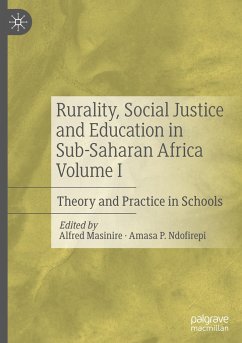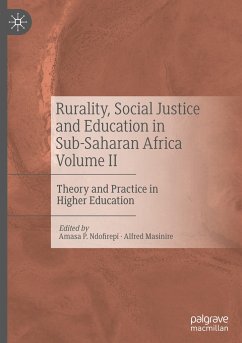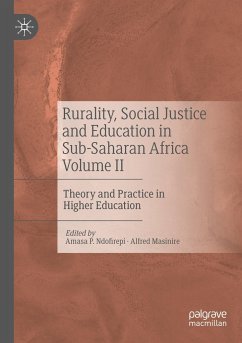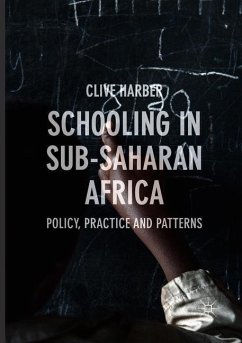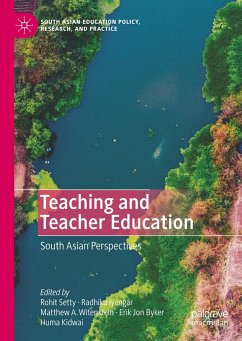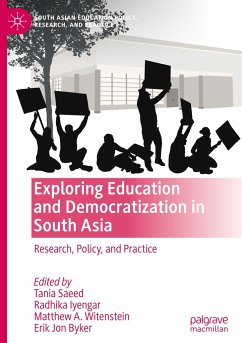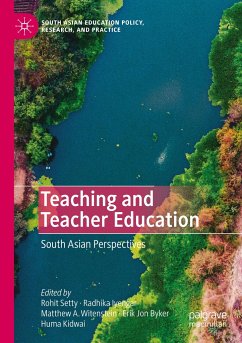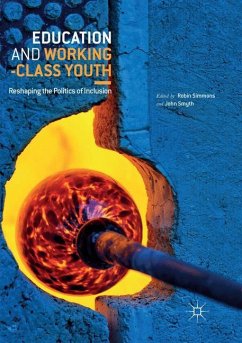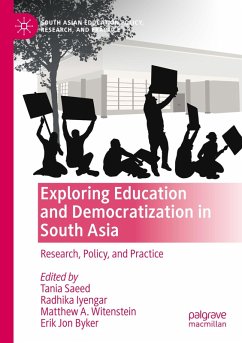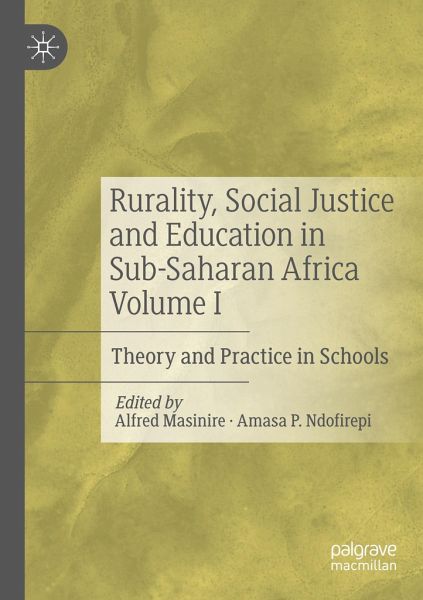
Rurality, Social Justice and Education in Sub-Saharan Africa Volume I
Theory and Practice in Schools
Herausgegeben: Masinire, Alfred; Ndofirepi, Amasa P.
Versandkostenfrei!
Versandfertig in 6-10 Tagen
76,99 €
inkl. MwSt.

PAYBACK Punkte
38 °P sammeln!
This book explores rurality and education in sub-Saharan Africa through a lens of social justice. The first in a two-volume project, this book explores the possibilities and constraints of rural social justice in diverse educational contexts: how should rurality be defined? How does education shape and reshape what it means to be rural? Drawing chapters from a diverse range of contributors in sub-Saharan Africa, the two volumes are underpinned by a robust social justice approach to rural schooling and its intersections with access, gender, colonialism, social mobility and dis/ability. Ultimate...
This book explores rurality and education in sub-Saharan Africa through a lens of social justice. The first in a two-volume project, this book explores the possibilities and constraints of rural social justice in diverse educational contexts: how should rurality be defined? How does education shape and reshape what it means to be rural? Drawing chapters from a diverse range of contributors in sub-Saharan Africa, the two volumes are underpinned by a robust social justice approach to rural schooling and its intersections with access, gender, colonialism, social mobility and dis/ability. Ultimately, these volumes reflect the need to shift conceptions of rurality from colonial and conservative stereotypes to an appreciation of rurality as locations in space and time, with their own unique attributes and opportunities. Harnessing indigenous African concepts of justice to open up conversations into teaching and knowledge production in higher education, this book will be of interest to scholars of rurality and education, as well as wider discussions on decolonising the academy.





